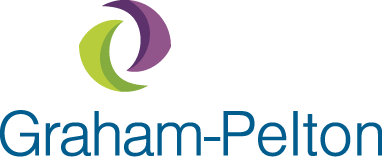
There is a spectrum of adjectives that can be used to describe the year 2020. For me, chief among them are disruptive, unyielding, inventive, and, yes, heartening. In one sense, the year was a blur; in another sense, days crept by. In one sense, there was double vision in simultaneously leading a company and working with nonprofit leaders; in another sense, there was 20/20 clarity.
More than anything, there’s been much to learn and even celebrate during this unusual year of paradox. So, as this year slowly winds down, I’ve reflected on what I’ve learned as the leader of Graham-Pelton and how those same lessons can apply to nonprofit leadership and fundraising.
Choose your mindset wisely
Your thoughts have energy; therefore, mindset is everything. When fundraisers face challenges, we have a choice in how we respond. Adopting an abundance mindset (the perception that there is the ability to be successful based on the resources that we have) and rejecting a scarcity mindset (the perception that there is never enough and success is limited) is the difference between growth and stagnation.
Stephen Covey introduced the phrase abundance mindset in his 1989 bestseller, The 7 Habits of Highly Effective People. Since then, I became a student on personal development and realized that leaders must take care of themselves first if they are to lead effectively. You cannot show up authentically for your organization, team, and clients (or, in the case of nonprofits, donors) if you are not fit – physically, mentally, and emotionally. That realization led to my daily meditation practice and helps me calibrate my mindset each day.
Balance proactive and reactive moves
Using an abundance mindset, objectively assess the stability of your operation and identify how you can achieve greater efficiencies that will bring short- and long-term return on investment. Then respond to that assessment rather than the crisis. This approach can result in clearer thinking and proactive measures that can preserve your most critical and human of assets – your people.
When the realities of the pandemic hit Graham-Pelton in early March, we conducted a threat assessment to understand the stability of our client base, including stability relative to their donors. The outcome was surprisingly positive. From there, we assessed our planned investments – financial plans that were made well before a global pandemic – and made swift but calculated decisions. One such decision was to replace our annual, in-person company meeting scheduled for October with a virtual meeting. We preserved our traditions even as we adjusted to meet the new circumstances – and as we look back, we created new ones.
Quadruple communication and transparency
People will write their own narratives in the absence of information. Don’t leave teams, leaders, or donors to become the authors of your story. Develop your approach to communication with great care. Be confident that constituents can handle transparent and even difficult information – donors are motivated by solving problems. The content, consistency, frequency, and, most importantly, tone will demonstrate an abundance mindset and lead to confidence.
In late March, we launched a series of Town Halls – weekly, 30-minute Zoom meetings for our staff. As I conducted these meetings, I began to recognize that our colleagues not only craved information, but they could handle it and, most importantly, were eager to act on it. We created a robust, real-time forum for an exchange of information and ideas. The result was a higher degree of integrated efforts to further service to our clients and to our mission. We’ve recently moved to a bi-weekly cadence, but at Graham-Pelton, Town Halls have become a valued and integral part of our culture.
Share organizational resources
The onset of turbulent times, such as a pandemic, may prompt initial grim forecasts for the quarter or year, tempting organizations and leaders to retreat from the spotlight. But there is an opportunity to demonstrate the great work across your organization: to share important research that is being conducted, how your students are learning, the work of your healthcare providers, how your organization serves the most vulnerable. Sharing your resources can enable your organization to become more visible at a time when donors are looking for it, whether they know it or not.
At the end of March, Graham-Pelton created a webcast series called Silver Linings Playbook and began sharing information so nonprofits could chart their pathways forward. (Central to the series was the positive framing of “silver linings” – abundance mindset in action!) What started as a simple idea for a single webcast proved unexpectedly effective, and before we knew it, we were producing two, even three, highly attended webcasts each week. It’s been gratifying to hear it referenced as an act of corporate citizenship, but at the time, it was simply an act of humanity – a way to connect organizations with the resources and expertise we knew they needed.
Recognize the human experience
If 2020 taught us nothing else, it taught us that waving at the end of a Zoom meeting is the unsatisfying equivalent of a handshake. More profoundly, it taught us to cherish our relationships and recognize that each person experiences the impact of the pandemic in different ways. The year provided time to revitalize stewardship initiatives and enhance communications. Seize the opportunity to recognize donors in ways that celebrate your collective community and its individual members.
We have a long-held tradition at Graham-Pelton of recognizing standout performance at our annual company meeting. This year, though, it proved impossible to single out colleagues for their performances; each person was achieving so much while coping with their unique situations. So, in a break with tradition, at October’s (virtual) company meeting, we recognized all colleagues through a virtual yearbook “who’s who” commemorating the outstanding, unique contributions of each individual – contributions to our mission, culture, and clients – in a playful yet heartfelt way.
Double down on your mission
A common refrain at Graham-Pelton is “your nonprofit’s mission knows no day off”. Fundraising must continue for the benefit of those that you serve, even (especially) in times of crisis. The pandemic is the ultimate stress test of the strength and clarity of your mission. We saw that organizations that did not stray from their missions, but rather communicated with confidence and clarity, achieved success. We witnessed the ongoing and increased commitment of loyal and generous donors, as well as new donors that stepped forward during days of giving and other appeals.
Graham-Pelton’s mission is to elevate philanthropy so nonprofits can flourish. Important to note is that our mission is not limited to elevating philanthropy so that our clients can flourish. The work that we do goes beyond our clients and elevates the nonprofit sector and the fundraising profession. As a firm, we’ve never felt more committed to this mission than we have during 2020. It’s what inspired us to launch our Silver Linings Playbook series.
Design your new normal
Perhaps we all can agree that the post-pandemic ways of operating will not entirely resemble the pre-pandemic ways. Be proactive in determining which shifts in strategies, communication, budgeting, and ways of conducting business you want and choose to “stick with” beyond this pandemic. It is time to reimagine the future, not revert to the past.
At Graham-Pelton, for example, we’ll be continuing our Town Halls and changing how we recognize our colleagues. While we’ve shifted from the pandemic-focused Silver Linings Playbook programming, our webcasts are here to stay, and we will continue to offer our expertise to the nonprofit industry in this way. We’ll never take a handshake for granted, and until that day when we can shake hands again, we’ll continue to wave as we sign off Zoom calls.

